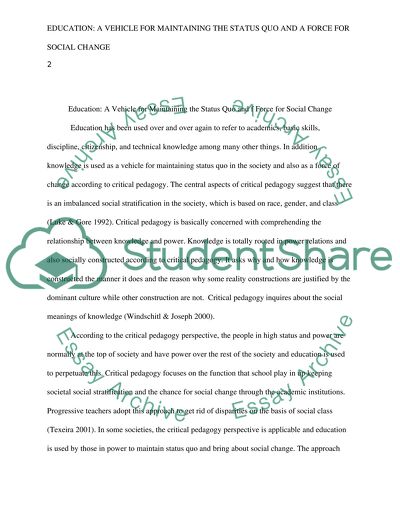Cite this document
(“Education: A Vehicle for Maintaining the Status Quo and Force for Essay”, n.d.)
Retrieved de https://studentshare.org/education/1438133-drawing-on-perspectives-from-the-critical-pedagogy
Retrieved de https://studentshare.org/education/1438133-drawing-on-perspectives-from-the-critical-pedagogy
(Education: A Vehicle for Maintaining the Status Quo and Force for Essay)
https://studentshare.org/education/1438133-drawing-on-perspectives-from-the-critical-pedagogy.
https://studentshare.org/education/1438133-drawing-on-perspectives-from-the-critical-pedagogy.
“Education: A Vehicle for Maintaining the Status Quo and Force for Essay”, n.d. https://studentshare.org/education/1438133-drawing-on-perspectives-from-the-critical-pedagogy.


